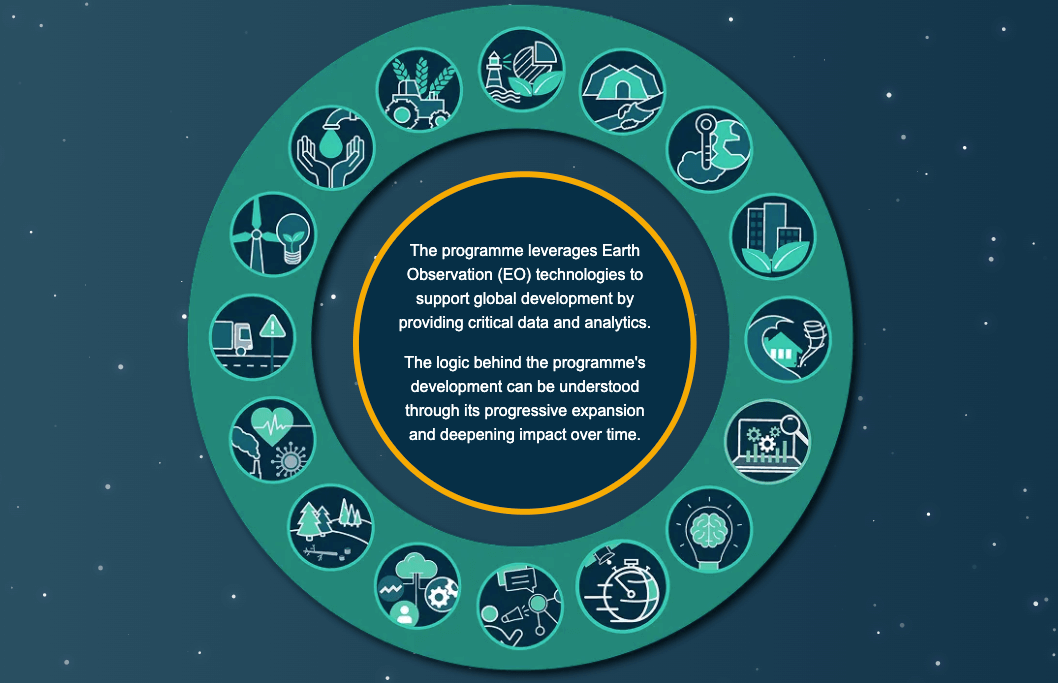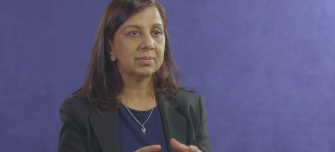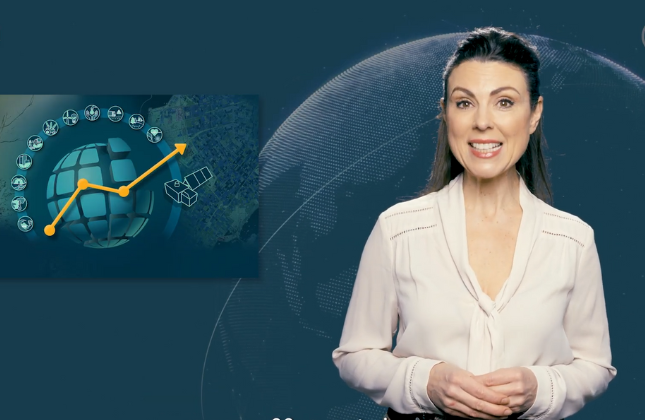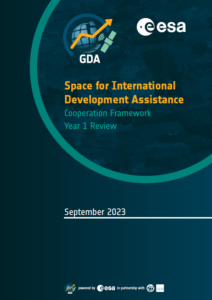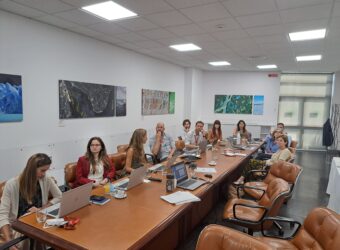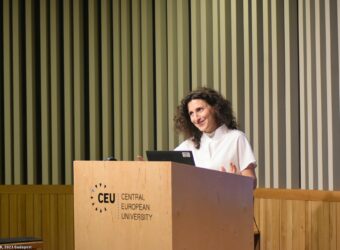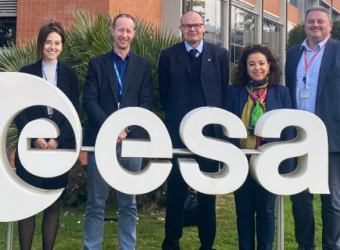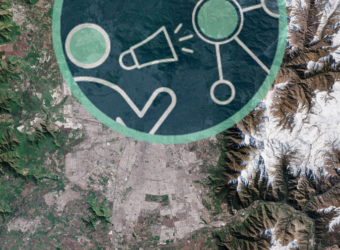The Space for International Development Assistance (Space for IDA) is a cooperation framework between ESA and its partner International Financial Institutions (IFIs), which are initially the World Bank (WB), and Asian Development Bank (ADB). Space for IDA supports the mainstreaming of EO through knowledge and product development, building capacities, and transferring skills to use, procure, and/or build EO information products. Caribou Space completed this review as part of the M&E and Impact Assessment (GDA M&E) activity to assess the progress of all Space for IDA activities as of January 2023. It identifies lessons and consequent recommendations to maximise the framework’s impact. The report is available here. This review builds on findings from the ESA Global Development Assistance Status Review Year 1.
Implementation of Space for IDA
The Space for IDA initiative is structured around the following three pillars, which are intended to improve awareness of EO information and increase its acceptance and adoption into development assistance programmes:
- Knowledge development (ESA-led Global Development Assistance (GDA) programme): Including the production of materials and products to improve awareness of EO Information, applications, and benefits.
- Capacity building (IFI-led): For development stakeholders, including IFIs, National Development Agencies (NDAs), and developing country beneficiaries, to support them and increase their acceptance to use EO information in their daily work.
- Skills transfer (IFI-led): Of existing European capabilities to establish local capacity in developing countries to expand adoption of EO information through producing and delivering diverse environmental information from satellite EO data and support local users.
Both the IFI-led capacity building and skill transfer activities are termed “complementary activities” to the ESA-led knowledge development.
Space for IDA implementation status
Knowledge development: As of January 2023, GDA was working with seven GDA AID consortia, who had initiated the development of 36 EO Information Developments (EOIDs) for 32 IFI projects in 40 countries. At that point, 11 products had been handed to users for initial feedback and thus insights into the quality, relevance, and potential impact were not available.
Complementary activities: The implementation of complementary activities experienced delays. A cited reason for this was a desire from the IFIs to observe the results from the GDA programme before clarifying the type, extent, and depth of complementary activities to invest in. Despite this, a handful of complementary activities were initiated—mainly at ADB—and there are efforts to commit resources across approximately ten WB projects.
Triangular cooperation approach
Triangular cooperation refers to a modality of cooperation amongst ESA, IFIs, and Client States (CSs) to support EO information mainstreaming. It is based on four elements: 1) trust and ownership, 2) complementarity and coordination, 3) joint learning, and 4) increased scope of collaboration. Stakeholders have reported that the triangular cooperation approach is relevant and brings value to the cooperation framework. Across all four elements, IFI stakeholders, and ESA with the EO services sector were more involved than the CS partners. This was mainly due to the more advanced status of the GDA activities compared to the IFI to CS complementary activities. To enhance triangular cooperation, a number of recommendations were forwarded, including:
- Establish and clarify roles and expectations for IFI stakeholders involved in complementary activities
- Support the development of procurement-related capacity within IFIs
- Minimise misunderstanding between IFIs and the EO service sector by standardising language and outreach approaches
Space for IDA Impact
Awareness and acceptance of EO within IFIs has been growing over the past five years due to relevant ESA precursor initiatives to GDA (such as EO4SD), and a gradual technology diffusion at IFIs. While Space for IDA is early in its impact pathway (as of January 2023), it holds a strong prospect to capitalise on past efforts and further enhance the general awareness and acceptance of EO within IFIs.
There are positive indicators of mainstreaming support including; €4.5 million invested in complementary resources by IFIs; the setup of dedicated complementary IFI programme structures (such as the World Bank’s Digital Earth Partnership); and €2 million of new opportunities identified for GDA consortia to provide EO Information services to IFI clients. IFI’s investment in complementary activities is expected to increase over the next two years.
The review also highlighted important variables to support future mainstreaming that need to be considered including; costs and infrastructure barriers associated with EO services and products, extent and depth of capacity building and knowledge transfer activities, and obtaining the required level of engagement from IFI senior leadership to act as champions.
Overall, Space for IDA can count a number of achievements after just a year of activities. With that in mind, GDA activities still need more time, and more complementary activities need to be conducted, before Space for IDA’s impact on mainstreaming can be robustly assessed.



